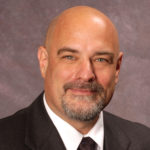Presenter: Timothy J. Fete, M.D., M.P.H., Retired, University of Missouri
Duration: 67 minutes
With 100+ different types of ectodermal dysplasias, understanding them all can be overwhelming! In this webinar, Dr. Tim Fete gives a comprehensive overview of the conditions to help you better understand what ectodermal dysplasias are, some of the most common types and what body parts can be affected.
You will learn…
- how ectodermal dysplasias are defined
- about primary features of hypohidrotic ectodermal dysplasia, Clouston syndrome, ectrodactyly-ectodermal dysplasia-clefting (EEC) syndrome, ankyloblepharon-ectodermal defects-cleft Lip/palate (AEC) syndrome, Goltz syndrome/
focal dermal hypoplasia, incontinentia pigmenti - about signs to look for if someone who can’t perspire has hyperthermia
- techniques to stay cool
- how the ectodermal dysplasias can affect growth and nutrition
- the various ways that ectodermal dysplasias can contribute to speech and communication issues plus how to evaluate and treat
- an overview of issues to address for your child at school
- plus how ectodermal dysplasias can affect the ears, nose and throat, allergies, immune function, infections, cognitive function and quality of life
About the Expert

Dr. Fete is Professor Emeritus in the Department of Child Health at the University of Missouri School of Medicine. He has retired after 41 years of clinical care as an academic general pediatrician and pediatric hospitalist. His research interests are related to growth and development in the various ectodermal dysplasia syndromes. He now devotes his professional time to advocacy efforts for the welfare of children and families.
He has served on the NFED Scientific Advisory Council since 1993, and also serves on the Boards of the Missouri Chapter of the American Academy of Pediatrics, Ronald McDonald House of Mid-Missouri and as President of the Board of the Missouri Immunization Coalition. He is the recipient of multiple teaching awards from Saint Louis University and the University of Missouri, and several advocacy awards from Missouri, Colorado and Utah.
Disclaimer: This webinar is not intended as a substitute for medical advice. Only a healthcare provider with a full medical history may determine the proper treatment options. Opinions shared do not necessarily reflect those of the NFED. Topics, speakers and date are subject to change.
Please fill out the following form to access the resource: